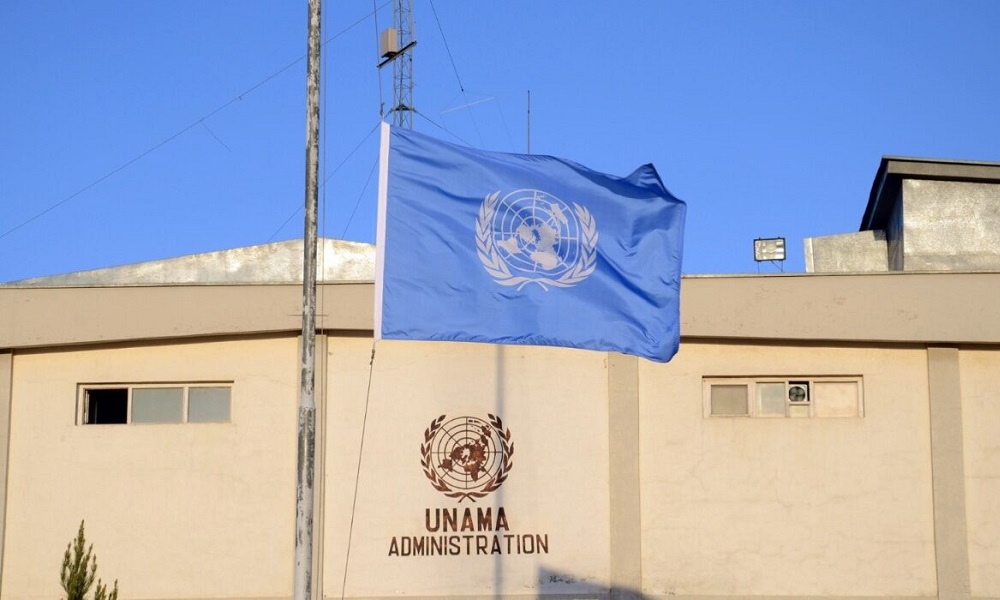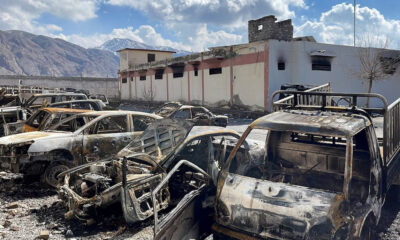Latest News
Tajikistan sees no drop in drug smuggling from Afghanistan

Tajikistan’s Presidential Drug Control Agency (DCA) says it has not registered any decline in the volume of drug trafficking from neighboring Afghanistan.
Referring to a recent UN Office on Drugs and Crime report, which stated opium cultivation and production had dropped by 95%, a DCA official Mukbilsho Muyassar told the press that opioids are still flowing into Tajikistan.
“According to the UN Office on Drugs and Crime, opium poppy cultivation and opium production in Afghanistan has decreased by 95%, yet opioids, such as heroin and opium, as well as Afghan-made methamphetamine, are still flowing into Tajikistan, with the reason behind this being that Afghan drug manufacturers generate greater profits from methamphetamine production,” he said.
Russia’s TASS news agency reported that according to recent reports by the DCA, clandestine synthetic drug labs have started to emerge in Afghanistan to produce these drugs, which are then smuggled into Tajikistan and later transported to other countries.
The DCA stated that more than 2.5 tons of illicit substances were seized from circulation in regions of Tajikistan bordering on Afghanistan in 2023, accounting for over half of all drugs seized in the Central Asian country last year.
Muyassar also said Tajikistan has received no information on any counter-narcotics efforts being implemented by Afghan authorities.
Last December, Atageldi Yazlyyev, director of the Central Asian Regional Information and Coordination Center for Combating Illicit Trafficking of Narcotic Drugs, Psychotropic Substances and their Precursors (CARICC), also said that despite analysts’ estimates of poppy cultivation in Afghanistan plummeting, the center’s statistics indicated an increase in opium trafficking. He attributed this to the need to dispose of reserves from previous years’ harvests.
The Islamic Emirate has not yet responded to this claim by Tajikistan, but it has repeatedly stated that it has taken serious steps to stop the cultivation and production of narcotics.
In April 2022, the Islamic Emirate banned the cultivation of poppy across the country, promising to prosecute violators under Sharia law. A ban was also imposed on “the use, transportation, trade, export and import of all types of narcotic drugs.”
Latest News
Tajik foreign minister urges international community to help Afghanistan address its challenges

Tajikistan’s Minister of Foreign Affairs, Sirodjiddin Mukhriddin, has called on the international community to step up assistance for Afghanistan as the country continues to face challenges.
Speaking at a press conference, Mukhriddin said Tajikistan and Afghanistan maintain active coordination between their law enforcement agencies to prevent security incidents along their shared border. He noted that this cooperation remains essential, as the frequency of armed attacks and criminal activity in border regions has increased in recent months.
He said that Afghan authorities had assured Tajikistan they would take necessary measures to stop further incidents and would conduct thorough investigations into any violations.
Mukhriddin emphasized that Tajikistan supports constructive international engagement aimed at improving Afghanistan’s socio-economic conditions. He highlighted that Tajikistan has provided more than 6,000 tons of humanitarian aid to Afghanistan, including food and essential supplies delivered in 2025 to assist communities affected by devastating earthquakes.
The minister also pointed to growing economic cooperation between the two neighbors. Tajikistan has reopened border markets and continues to supply electricity to Afghanistan.
Tajikistan and Afghanistan share a border of more than 1,300 kilometers—over 1,100 km of which consists of waterways and about 190 km of land boundaries.
Meanwhile, Zafar Samad Director of the Drug Control Agency under the President of the Republic of Tajikistan, has said that last year, 17 incidents of clashes happened with drug smugglers along the border with Afghanistan. As a result, two Tajik forces and 10 Afghan nationals have been killed, he added.
Latest News
Baradar: Afghanistan is not an easy target, but a ‘bitter tree’

Mullah Abdul Ghani Baradar, Deputy Prime Minister for Economic Affairs, warned during a graduation ceremony for soldiers of the Ministry of National Defense that the Islamic Emirate will respond decisively to anyone with ill intentions toward Afghanistan.
He said the country is “not an easy target, but a bitter tree that has made the throats of empires bitter and newborns can never digest.”
Baradar also announced that in the coming days, the Islamic Emirate will introduce tax exemptions of one to five years for domestic and foreign investors, based on the level of investment in new sectors. He also said that the process of distribution of land to manufacturers will be accelerated.
Baradar called on countries to engage in political and economic relations according to the values and principles of the Islamic Emirate, emphasizing that energy and resources spent on conflict would be better used to support one another and strengthen common interests.
Latest News
Fourteen former Afghan government forces killed in last three months of 2025: UNAMA

The United Nations Assistance Mission in Afghanistan (UNAMA), in its latest report on the human rights situation in Afghanistan, stated that 14 members of the former Afghan government forces were killed in the last three months of 2025.
The report noted that during this period, there were 28 cases of arbitrary arrest and detention, and at least seven cases of torture and ill-treatment targeting officials and personnel of the former Afghan government.
According to the report, some of the officials and forces who had recently returned to Afghanistan from Iran and Pakistan were among those subjected to extrajudicial killings, arbitrary arrests, and detentions.
The report also highlighted restrictions on women’s work and movement, executions and flogging of individuals, and disruptions to internet and telecommunications services.
-

 Sport4 days ago
Sport4 days agoHosts and heavyweights advance as AFC Futsal Asian Cup reaches semifinals
-

 Latest News3 days ago
Latest News3 days agoTerrorist threat in Afghanistan must be taken seriously, China tells UNSC
-

 Latest News4 days ago
Latest News4 days agoUzbekistan, Pakistan advance Trans-Afghan railway project
-

 Sport4 days ago
Sport4 days agoWinter Olympics finally underway, ATN to broadcast exclusively across Afghanistan
-

 Sport4 days ago
Sport4 days agoAfghanistan beat West Indies in final T20 WC warm-up match
-

 Regional5 days ago
Regional5 days agoTurkish President Erdogan meets Saudi Crown Prince in Riyadh
-

 Sport2 days ago
Sport2 days agoIndonesia shock Japan to reach historic AFC Futsal Asian Cup final
-

 Regional4 days ago
Regional4 days agoPakistan sends helicopters, drones to end desert standoff; 58 dead
























